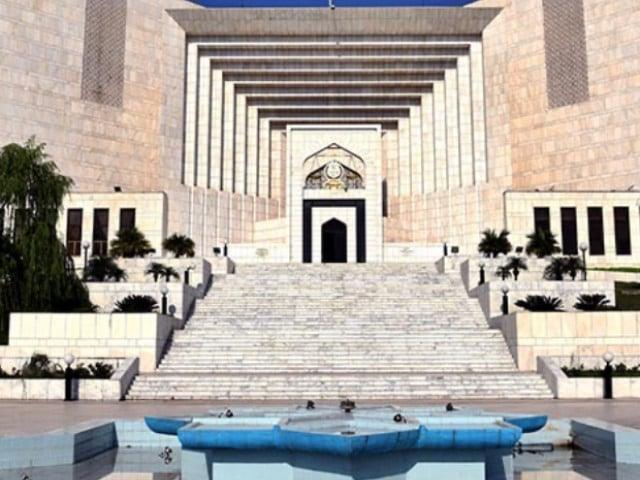The Supreme Court continued to hear the petitions on Wednesday concerning the trial of civilians before the military courts, with the lawyer Salman Akram Raja, lawyer of a sentenced in the riots of May 9, presenting arguments in court. In response to a question by judge Hasan Azhar Rizvi, lawyer Salman Raja said that if a civilian was found guilty of spying on a hostile country, they would be judged under the official secrets law. Referring to the Kulbhushan Jadhav affair, Raja noted that in the modern era, it is impossible to suspend the fundamental rights of an individual and to place them under the control of a commander. Raja also specified that the provisions of articles 2-1 and D2 of the army law had been adopted by the Parliament in 1967, and he argued that the Supreme Court could review the sections without reviewing the Brig affair FB Ali, in which a retired military officer was tried in a military court as a civilian. Justice Jamal Mandokhail asked whether the court is bound by his previous judgments or by the constitution of Pakistan. While recognizing the high esteem of decisions of the Supreme Court, Raja replied that the court was not bound by them. Judge Mandokhail then asked, "What if the constitution is changed?"
Raja replied, "The situation would change," The addition of article 75 did not exist at the time of the FB Ali trial. Raja also stressed that legal proceedings have evolved worldwide. He pointed out that the closed trials were no longer conducted at that time, and even for military staff, a court martial of the 19th century would be inappropriate in 2025. At this stage, Barister Aitzaz Ahsan informed the court that He had represented Major Ishtiaq and Ayaz Sipra in the FB Ali case. He described how the trial took place in Attock Fort prison, all the files destroyed later. Lawyers were subjected to bodily searches before leaving to ensure that no document has been withdrawn from the premises. In a lighter moment, judge Jamal Mandokhail questioned Raja about his political affiliation, recalling that when Raja’s party was in power, he actively adopted legislation concerning civil trials in the military courts. Raja has clarified, "I was not part of the PTI at the time, and I was generally aligned with the opposition."




